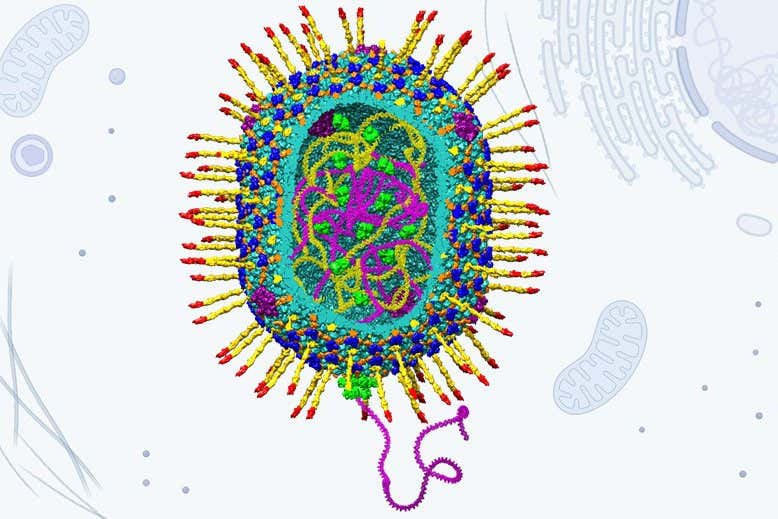A modified virus that can carry around 20 times more DNA than existing viruses used for gene therapies could allow us to make complex changes to cells
By Michael Le Page
30 May 2023
Model of bacteriophage T4, which the gene therapy-advancing virus is based on
Venigalla B. Rao; Victor Padilla-Sanchez, Andrei Fokine, and Jingen Zhu
A modified bacteria-killing virus, known as a phage, can deliver far more DNA to human cells than is possible with existing techniques. This capacity could lead to major advances in cell and gene therapies by allowing more sophisticated changes to be made to cells in a single step.
The modified virus can carry DNA strands up to 171,000 base pairs long – around 20 times as much as the largest existing viruses used for gene therapies. In addition to this DNA, it can carry more than 1000 other molecules, such as RNAs and proteins, says Venigalla Rao at The Catholic University of America in Washington DC.
“We can combine all of these in one particle and be able to aim not only for therapy, but potentially for a cure,” says Rao.
Advertisement
A growing number of treatments involve modifying cells inside or outside of the body, but delivering the necessary components to cells remains a huge challenge.
For instance, some people have a condition that causes progressive muscle weakness, called Duchenne muscular dystrophy, that is due to mutations in a gene for a protein called dystrophin. Efforts to develop gene therapies for the condition have been stymied by the fact that DNA of around 11,000 base pairs long is required to make the full-size dystrophin protein – more than fits in existing viruses.
In one experiment, Rao’s team delivered a dystrophin gene to human cells growing in culture and showed that the cells produced the full-size protein.
